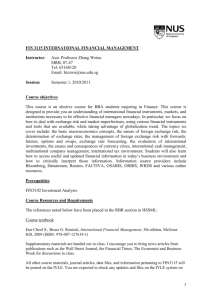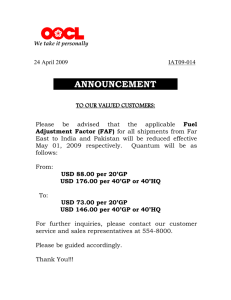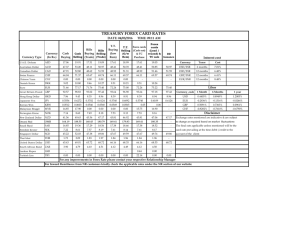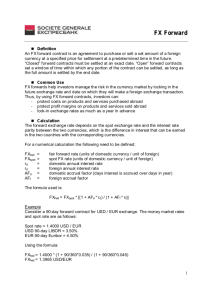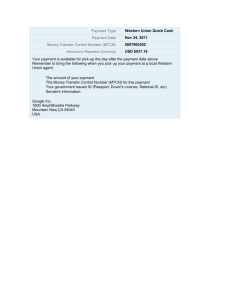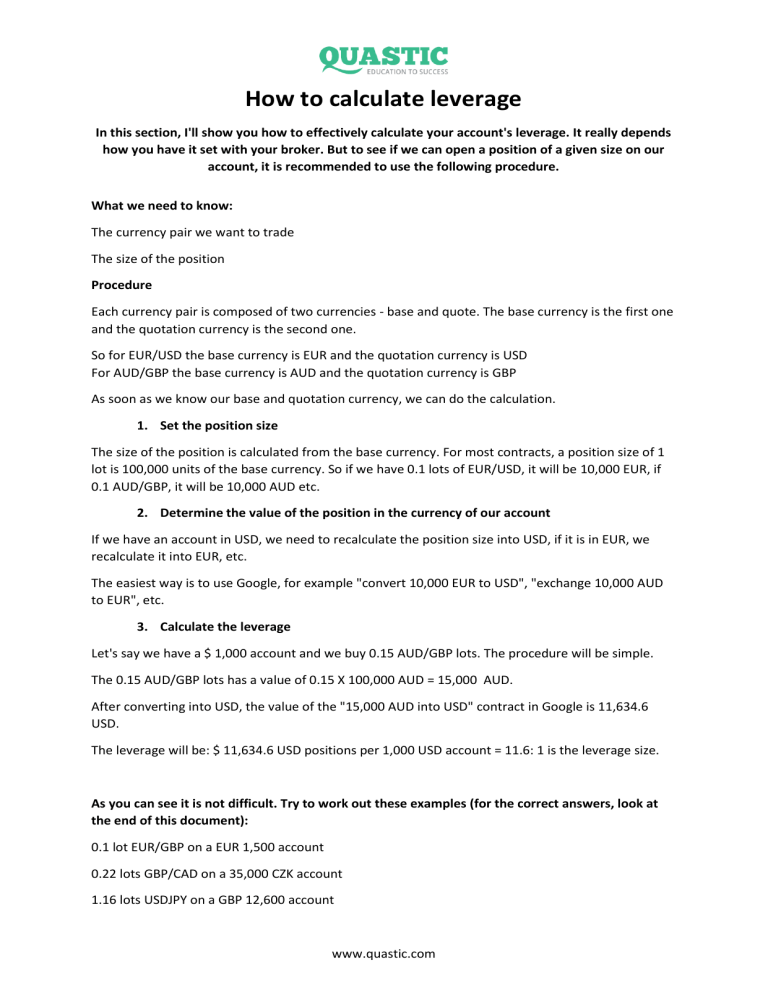
How to calculate leverage In this section, I'll show you how to effectively calculate your account's leverage. It really depends how you have it set with your broker. But to see if we can open a position of a given size on our account, it is recommended to use the following procedure. What we need to know: The currency pair we want to trade The size of the position Procedure Each currency pair is composed of two currencies - base and quote. The base currency is the first one and the quotation currency is the second one. So for EUR/USD the base currency is EUR and the quotation currency is USD For AUD/GBP the base currency is AUD and the quotation currency is GBP As soon as we know our base and quotation currency, we can do the calculation. 1. Set the position size The size of the position is calculated from the base currency. For most contracts, a position size of 1 lot is 100,000 units of the base currency. So if we have 0.1 lots of EUR/USD, it will be 10,000 EUR, if 0.1 AUD/GBP, it will be 10,000 AUD etc. 2. Determine the value of the position in the currency of our account If we have an account in USD, we need to recalculate the position size into USD, if it is in EUR, we recalculate it into EUR, etc. The easiest way is to use Google, for example "convert 10,000 EUR to USD", "exchange 10,000 AUD to EUR", etc. 3. Calculate the leverage Let's say we have a $ 1,000 account and we buy 0.15 AUD/GBP lots. The procedure will be simple. The 0.15 AUD/GBP lots has a value of 0.15 X 100,000 AUD = 15,000 AUD. After converting into USD, the value of the "15,000 AUD into USD" contract in Google is 11,634.6 USD. The leverage will be: $ 11,634.6 USD positions per 1,000 USD account = 11.6: 1 is the leverage size. As you can see it is not difficult. Try to work out these examples (for the correct answers, look at the end of this document): 0.1 lot EUR/GBP on a EUR 1,500 account 0.22 lots GBP/CAD on a 35,000 CZK account 1.16 lots USDJPY on a GBP 12,600 account www.quastic.com Determining the position according to the stop loss size In this section we will show you another simple calculation - how to determine the size of a trading position by the size of the stop loss. What we need to know: The SL size in pips How many USD we want to risk in one trade OR the account size and risk per trade in percentage terms Procedure: There is more than one way to calculate it, but I will show you the two basic ones, you can easily work out the others. Procedure 1: I have the SL in pips and I know how much USD I want to risk (it can be another currency instead of USD, but always take the risk currency according to the currency of your account) 1. The point value in USD (or another account currency) We use the quote currency to calculate the point value. So for EUR/USD, the value of the pip is in USD and for AUD/GBP it will be GBP. For the vast majority of pairs, the pip value is 10 units of the quote currency. For EUR/USD it will be 10 USD, for AUD/GBP it will be 10 GBP, etc. If I know that I want the SL to be 20 pips with a risk of 60 USD, I have to calculate what the value of the point in USD would be. For EUR/USD it is easy, the value is automatically in USD. For AUD/GBP, the point value will be in GBP, here I use Google again and I find that the result is that GBP 10 to USD is 14.24 USD. 2. I calculate the position size I know that I want to risk 60 USD for SL 20 pips. This means that a 1 pip move for me will be: 60 USD divided by 20 pips = 3 USD Now I know that for my risk setting the move by 1 pip will mean a 3 USD profit or loss. The calculation of the position is now easy: For EUR/USD: 3 USD divided by 10 USD = 0.3 lots For AUD/GBP: 3 USD divided by 14.24 USD = 0.21 lots You can see for yourselves that to get the same risk per trade, the position size for different currency pairs differs. But again, the calculation is quite easy. Here I know the size of the account and the risk in %, so I calculate the value of the SL in the currency of the account, i.e. if the account is USD 1,000 and I want to risk 3%, the risk would be 1.000 X 0,03 = 30 USD. And then I continue according to the procedure above. As you can see, it’s not difficult. Try to calculate the following exercises (the risk is in the currency of the account, and you will find the results at the end of the document): SL 15 pips and a risk of 25 USD for a USD/CAD currency pair SL 50 pips and a risk of 500 CZK for a AUD/CHF currency pair SL 30 pips and a risk of GBP 20 for a EUR/GBP currency pair www.quastic.com Determination of leverage size for trading with a defined risk The last calculation is a combination of the previous ones. Let's say I have: 1000 EUR account SL 25 pips Risk 2% Currency pair AUD/CHF Procedure: 1. Set the position size The risk will be 2% of 1000 EUR = 20 EUR The point value is 10 CHF = 8.81 EUR I'll take a risk of 1 pip: 20 EUR divided by 25 pips = 0.8 EUR Position size: 0.8 EUR divided by 8.81 EUR = 0.09 lots 2. Set the leverage 0.09 lots AUD/CHF contract, the position value is 100,000 X 0.09 = 9,000 AUD 9,000 AUD to EUR = 5,629.63 EUR 5,629.63 EUR value of the size of the position to 1000 EUR account 5,629.63 divided by 1,000 = 5.63: 1 is the effective leverage size As you can see, there are two very simple calculations and we get to the same result. It's true that you can find a calculator on the Internet for these calculations. But as a trader, you should know them. It will give you an idea of what affects the development of profits and losses in your trading. www.quastic.com The results of the exercises Leverage calculation: 0.1 lots EUR/GBP lot on a EUR 1,500 account 0.1 X 100,000 EUR = 10,000 EUR The value is in EUR, so we do not need to recalculate it into your account currency Leverage: 10,000 : 1,500 = 6.66 : 1 0.22 lots GBP/CAD on a 35,000 CZK account 0.22 X 100,000 GBP = 22,000 GBP 22,000 GBP to CZK = 643.744 CZK Leverage: 643,744 : 35,000 = 18.39: 1 1.16 lots USD/JPY on a 12,600 GBP account 1.16 X 100,000 USD = 116,000 USD 116,000 USD to GBP = 81,449 GBP Leverage: 81,449 : 12,600 = 6,46 : 1 Position size calculation: SL 15 pips and a risk of 25 USD for a USD/CAD currency pair Pip value: 10 CAD = 7.94 USD Pip value for risk calculation: 25 USD divided by 15 pips = $ 1.67 Position size: 1.67 USD divided by 7.94 USD = 0.21 lots SL 50 pips and a risk of 500 CZK for a AUD/CHF currency pair Point value: 10 CHF = 213 CZK Pip value for risk calculation: 500 CZK divided by 50 pips = 10 CZK Position size: 10 CZK divided by 213 CZK = 0.04 lots SL 30 pips and a risk of GBP 20 for a EUR/GBP currency pair Point value: 10 GBP we do not have to recalculate Pip value for risk calculation: GBP 20 divided by 30 pips = GBP 0.67 Position size: 0.67 GBP divided by 10 GBP = 0.06 lots If anything is unclear, let us know at info@quastic.com www.quastic.com
